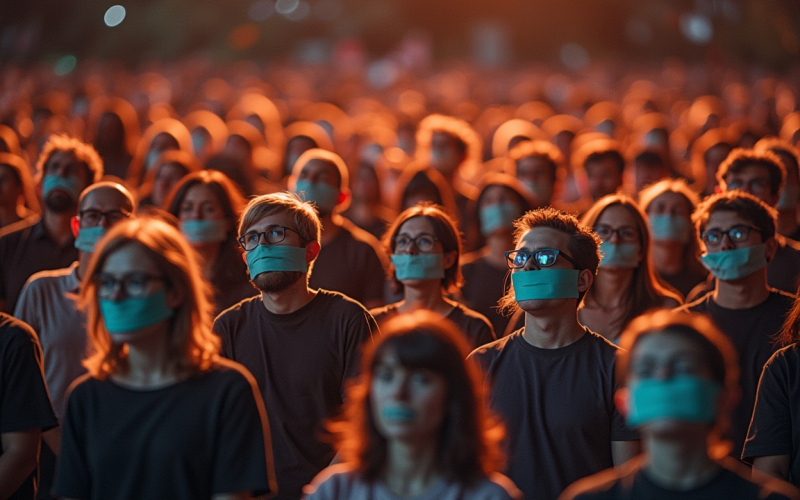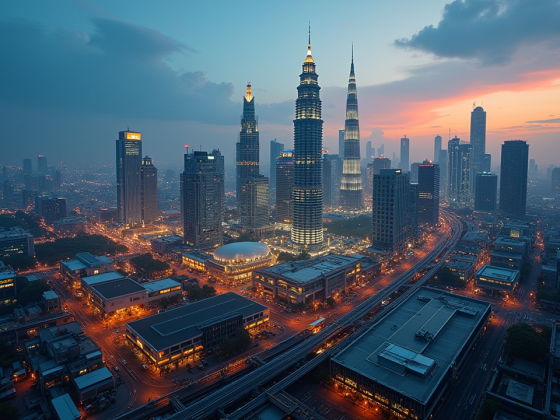Free speech is no longer threatened only by censorship or law. In this age, it is threatened by bullets, court orders, and opaque takedown notices.
The assassination of Charlie Kirk, a 31-year-old activist gunned down at a university podium, is more than just another headline in America’s cycle of political violence.
It tells us that when arguments are met with assassinations and when governments treat information as contraband, the space for disagreement shrinks. And when disagreement dies, so does democracy.
The new norm of political aggression
This year alone has seen the attempted killings of sitting and former heads of government across continents.
Europe has logged thousands of violent incidents against politicians in the past five years.
In France, violence against elected officials jumped 12x in 2023. In Germany, more than ten thousand attacks on politicians were recorded, with both far-right perpetrators and victims.
Meanwhile, the United States has now seen a disturbing rhythm of attacks.
An attempt on Donald Trump’s life last year.
Local officials in Minnesota killed in their own homes in June.
Now Charlie Kirk, shot in front of students.
Even more disturbing is the fact that young Americans, in particular, are significantly more willing than older generations to justify killing political opponents or storming buildings.
Studies have shown that strong public denunciations of violence by leaders can slow this trend. Yet the reflex of many politicians is to use these moments to score points instead of defending norms.
Perhaps this indicates a collapse of confidence in politics itself. But what is certain is that when violence is treated as just another tool in the partisan fight, it becomes easier for the next would-be assassin to justify pulling the trigger.
Why the violence escalates
The first culprit is polarization. When voters believe their opponents are not rivals but existential threats, violence becomes thinkable.
Second is extreme party leadership. When political actors flirt with violent rhetoric or wink at militias, they move violence from the fringe into the mainstream.
The third is democratic disillusionment. When citizens lose faith in elections, courts, or institutions, they seek rupture and forget about ballots.
Research is blunt on this point. Scholars working with US intelligence found highly polarized countries are among the most unstable. In Europe, far-right parties like the AfD and National Rally not only embolden violent supporters but also suffer disproportionate attacks themselves. Greece offers another example.
Violence spreads in all directions once norms erode. In the United States, exposure to violent rhetoric has been shown to normalize aggression, erode mental health, and harden punitive attitudes. Violence begets violence.
The “black sheep effect” adds another layer as citizens sometimes turn against their own leaders when they perceive betrayal of core values or failure to provide security.
In this warped logic, killing a leader is framed as saving the group. Historical examples of Rabin in Israel and JFK are prime examples. But one doesn’t have to look that far. The protests in Nepal are a big case in point.
How control hides behind law
Violence is not the only way speech is silenced. Consider the Reuters case where a clip of Xi Jinping and Vladimir Putin talking about organ transplants was pulled after China’s broadcaster revoked licensing.
Officially, this was a copyright matter. In reality however, it was a reminder of how legal instruments can be repurposed as weapons of control.
Copyright, privacy, national security are all legitimate concerns. But when they are invoked selectively, they become a cover for censorship.
The irony, of course, is that the attempt to bury it only amplified attention. The state tried to erase a conversation and instead provoked the Streisand effect.
What makes this dangerous is not the individual case but the precedent. Just as violence warns people off speaking, takedowns warn outlets off publishing. When governments can reframe information as contraband, and when institutions comply out of fear of losing access, free speech dies either way.
The fragility of open debate
Free speech is not sustained by parchment guarantees alone. It relies on a shared civic discipline: the belief that words should be answered with words. Once that discipline erodes, constitutions and courts cannot hold the line.
That is why political violence and censorship are two faces of the same problem. Both send the same message: speak at your peril. One does so through fear of the gun. The other through fear of sanction, takedown, or banishment. Both reduce the range of ideas that can be contested in public, and both weaken the resilience of democracy.
The danger is not only that voices are silenced in the moment, but that millions of others choose never to speak at all. A self-censoring society does not need authoritarian decrees; it polices itself.
Why free speech matters
Although his opinions were often divisive and inflammatory, Kirk built his career on the conviction that even the most controversial views deserved a hearing. He thrived on confrontation, inviting detractors to challenge him face-to-face. For his supporters, this made him a champion of free speech. But for his critics, it made him a provocateur.
But wherever one stood, the principle was clear: debate must be met with debate. His murder was an attempt to settle an argument by eliminating the speaker.
Free speech is the only alternative to force. It is what keeps disagreements from becoming wars.
If that principle dies, democracy becomes a performance without substance. What begins with a takedown notice or an assassination attempt ends with a politics of silence, where only the powerful and the violent are heard.
The question now is whether we all believe that speech is worth defending. If so, then even the most provocative voices must be protected, not because they are right, but because without them, there is no democracy left to argue over.
The post When free speech becomes a target appeared first on Invezz


